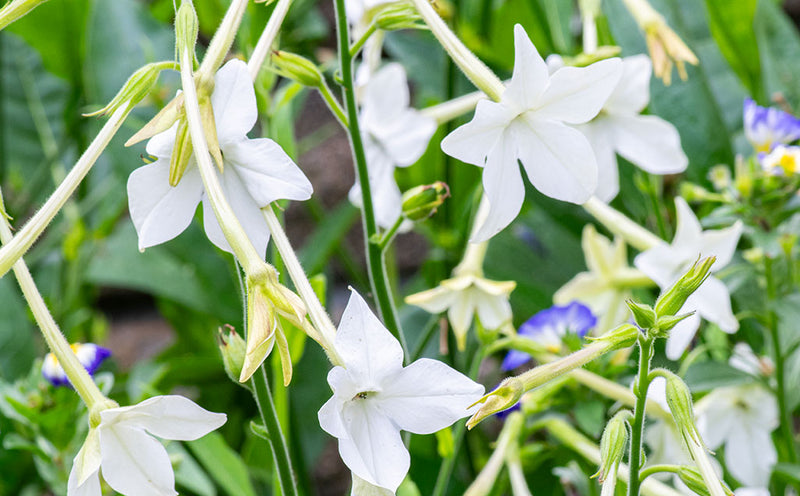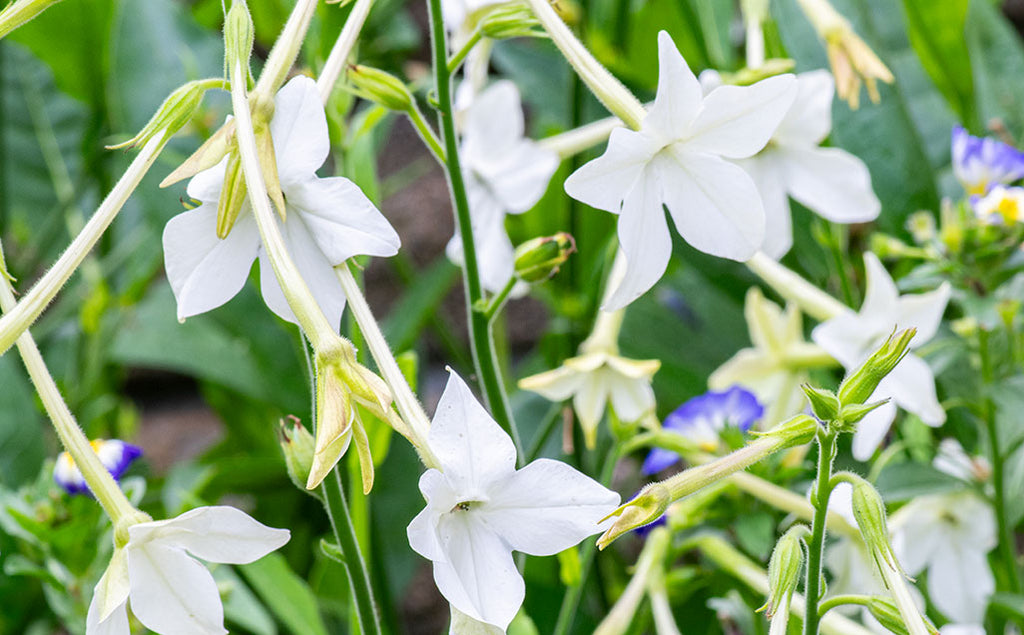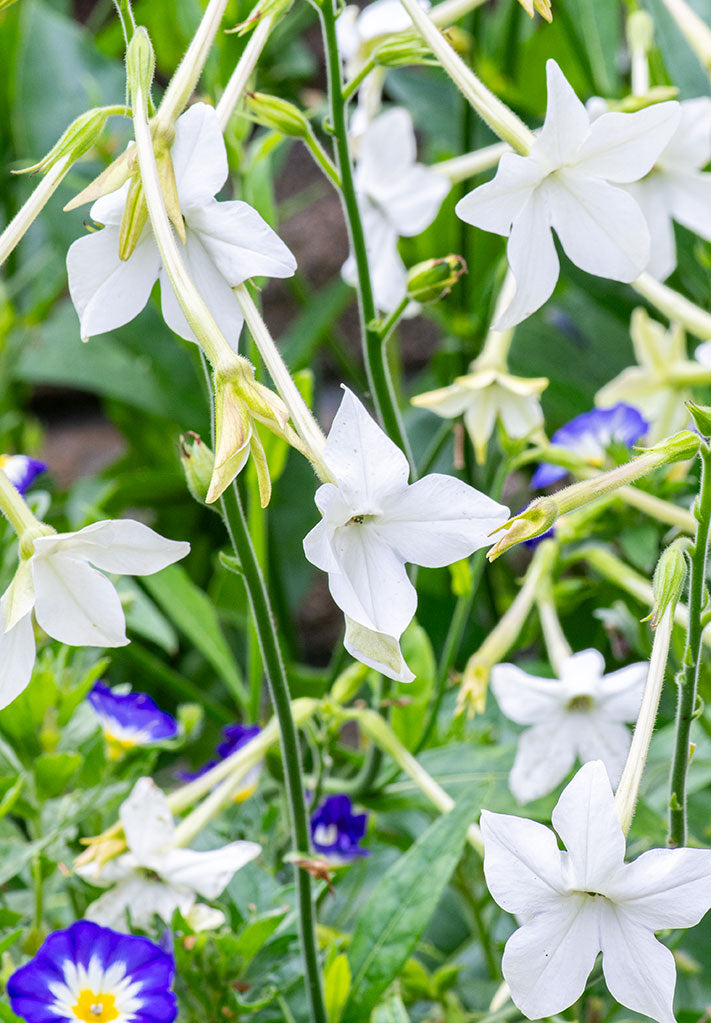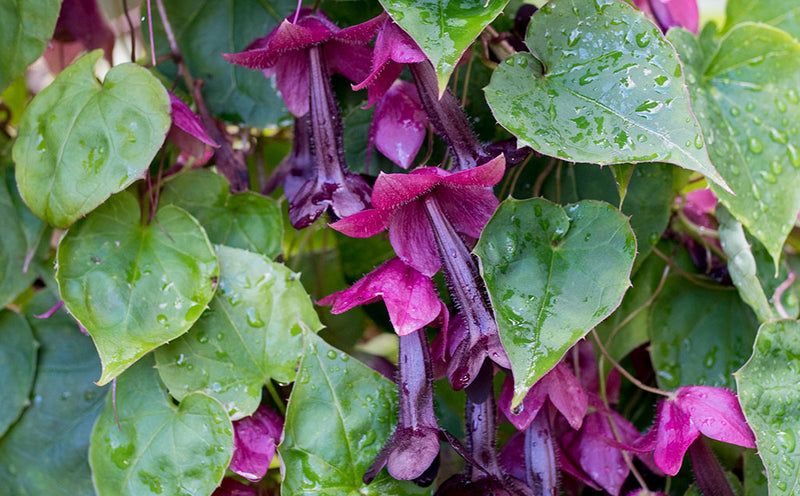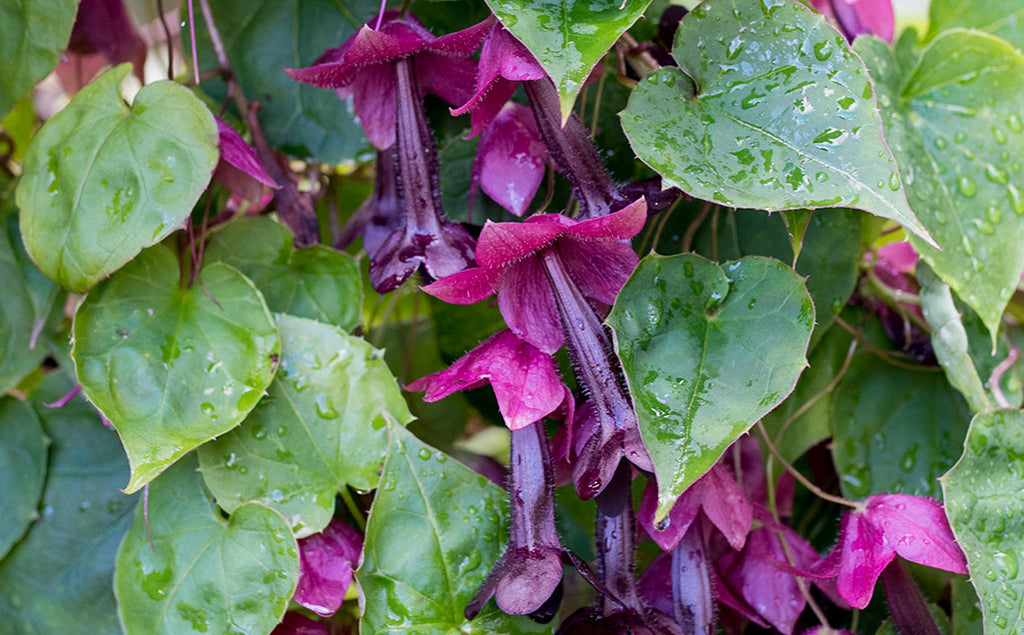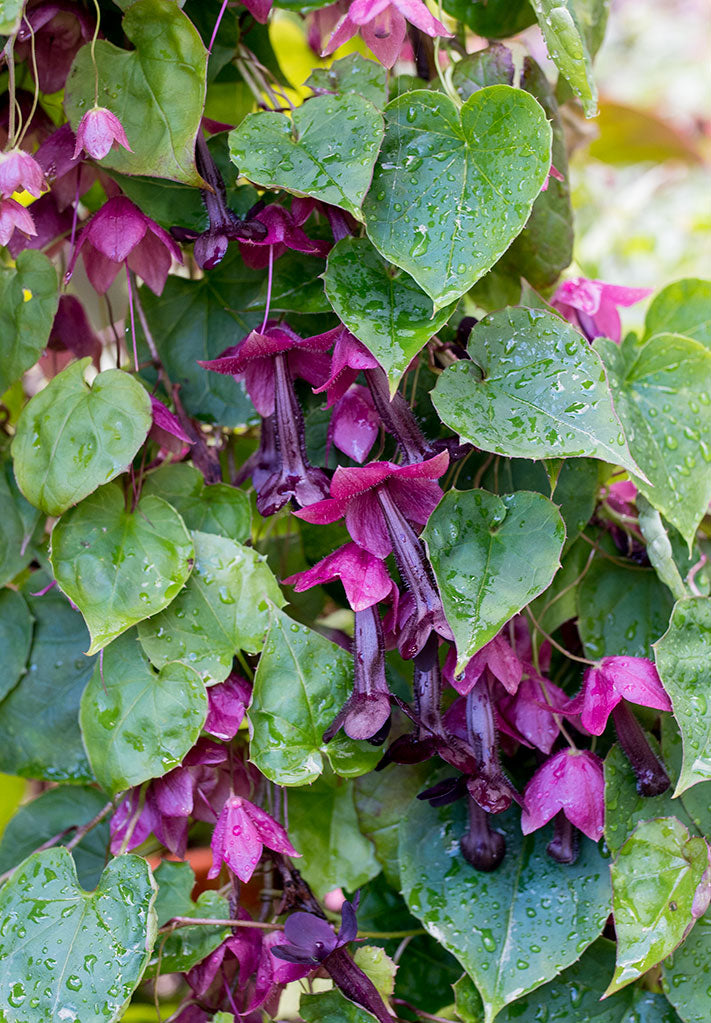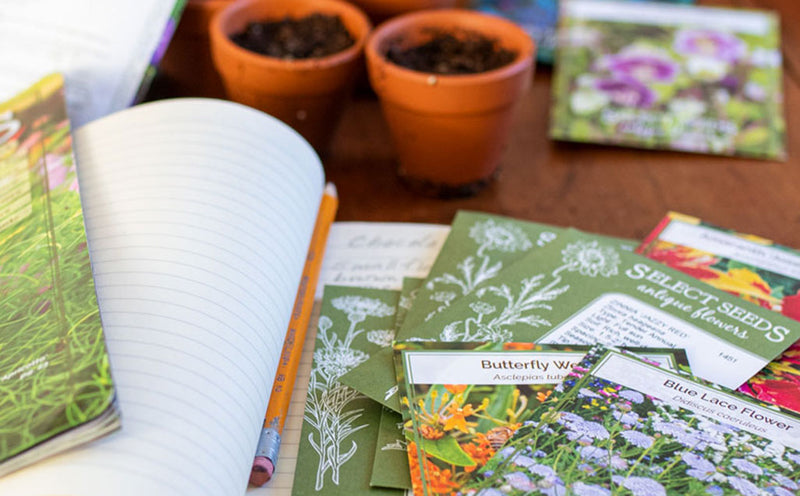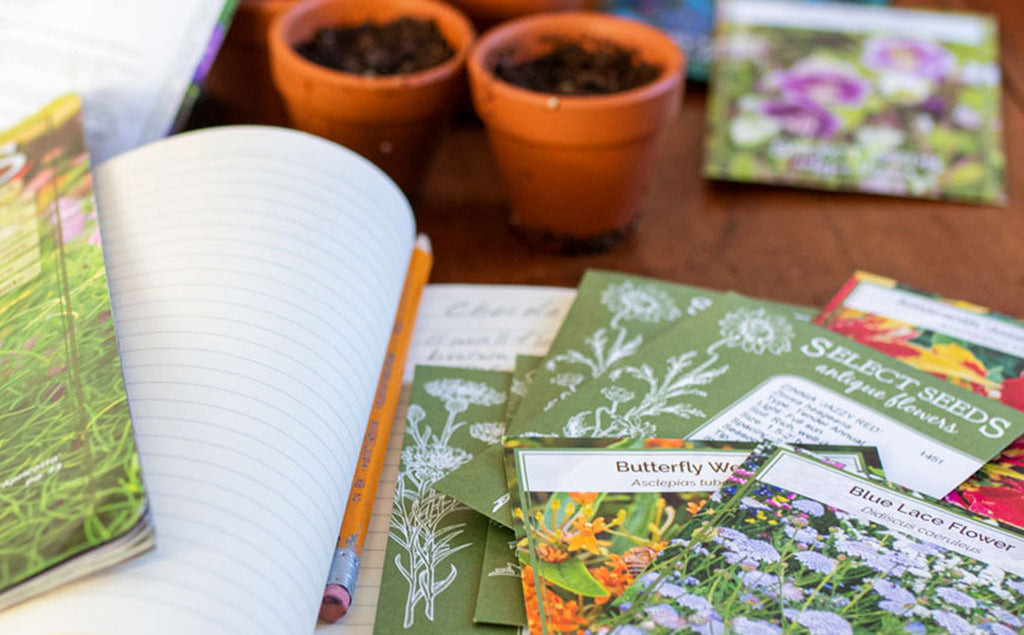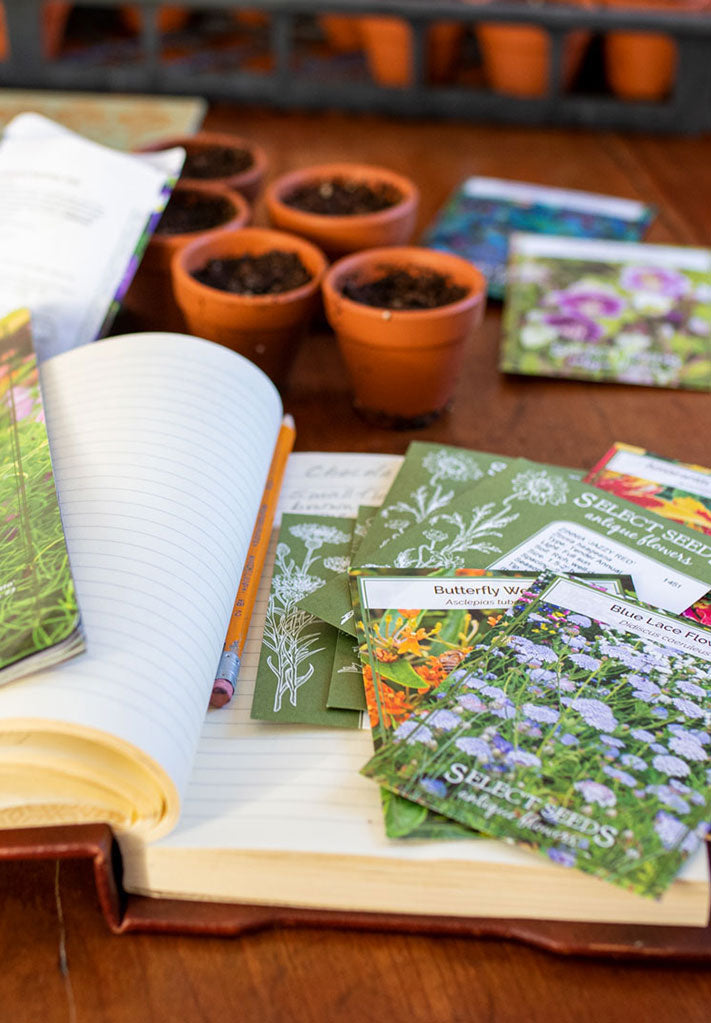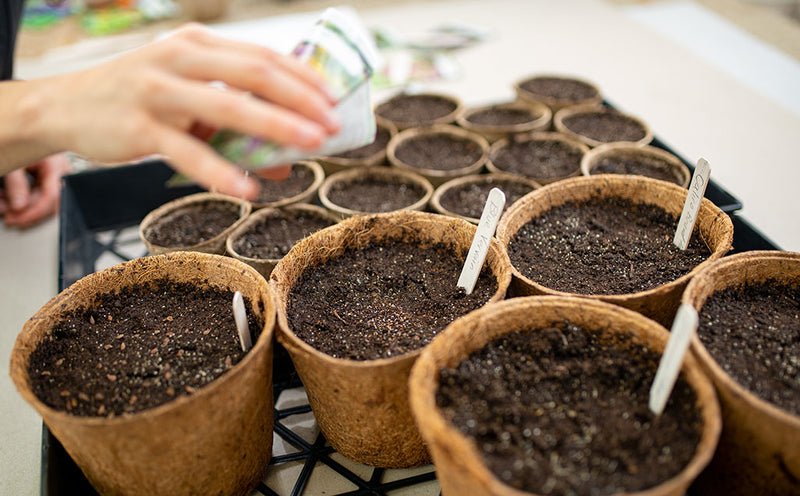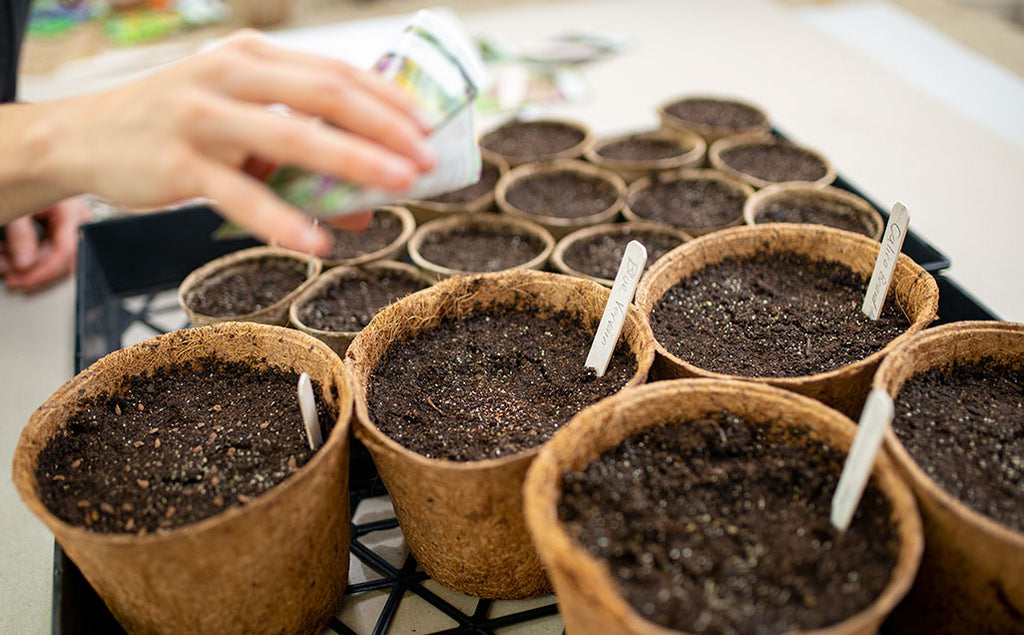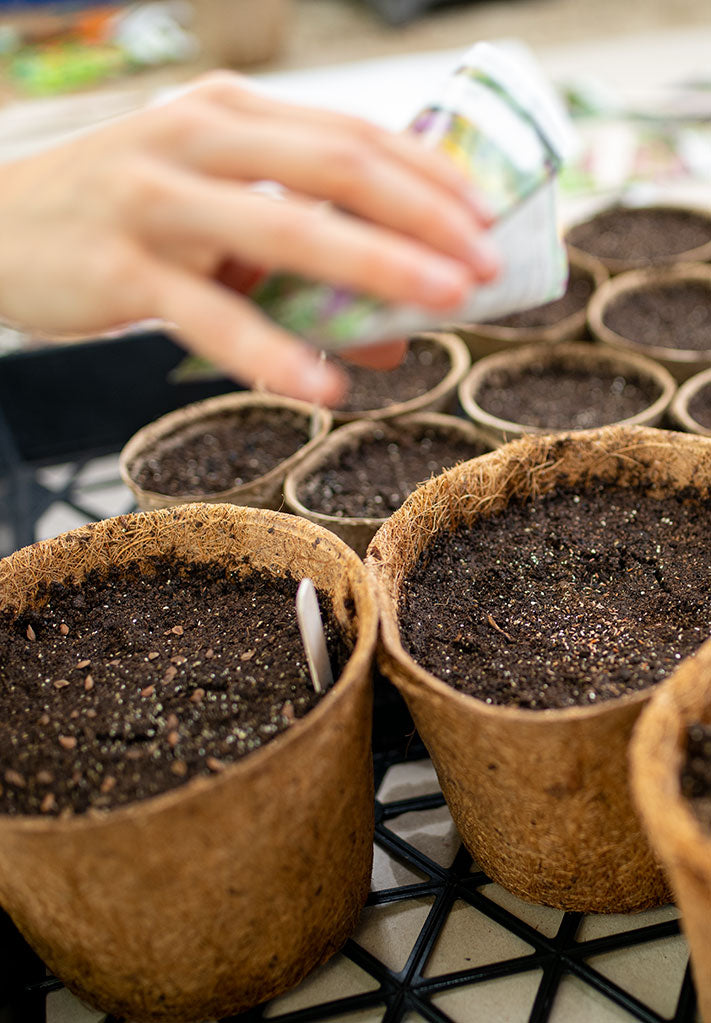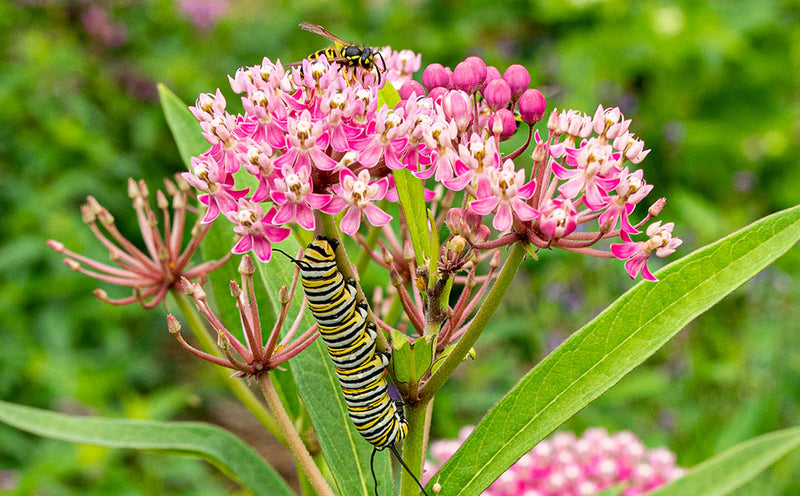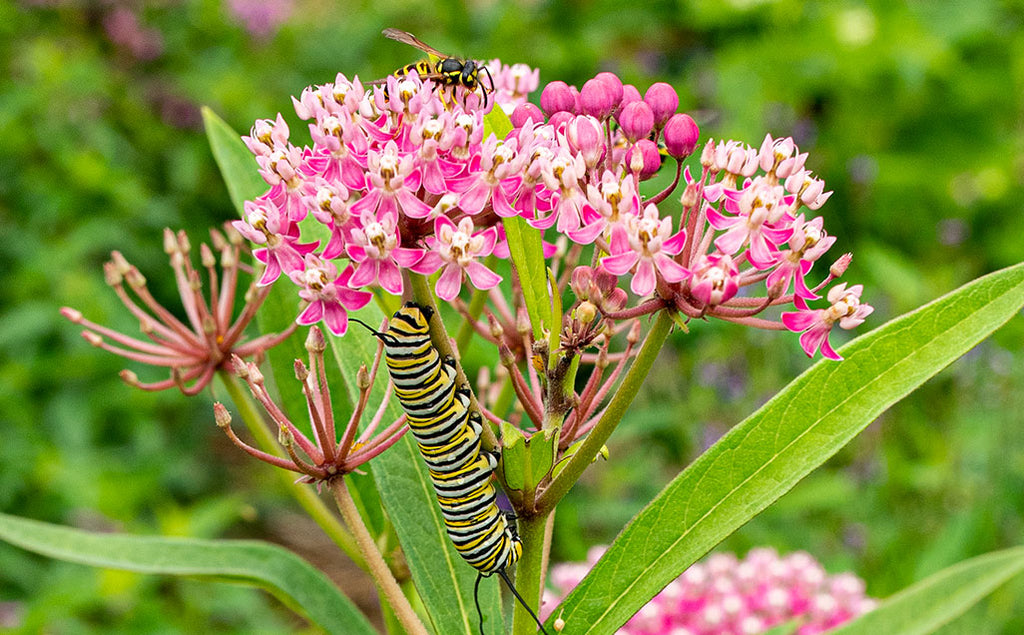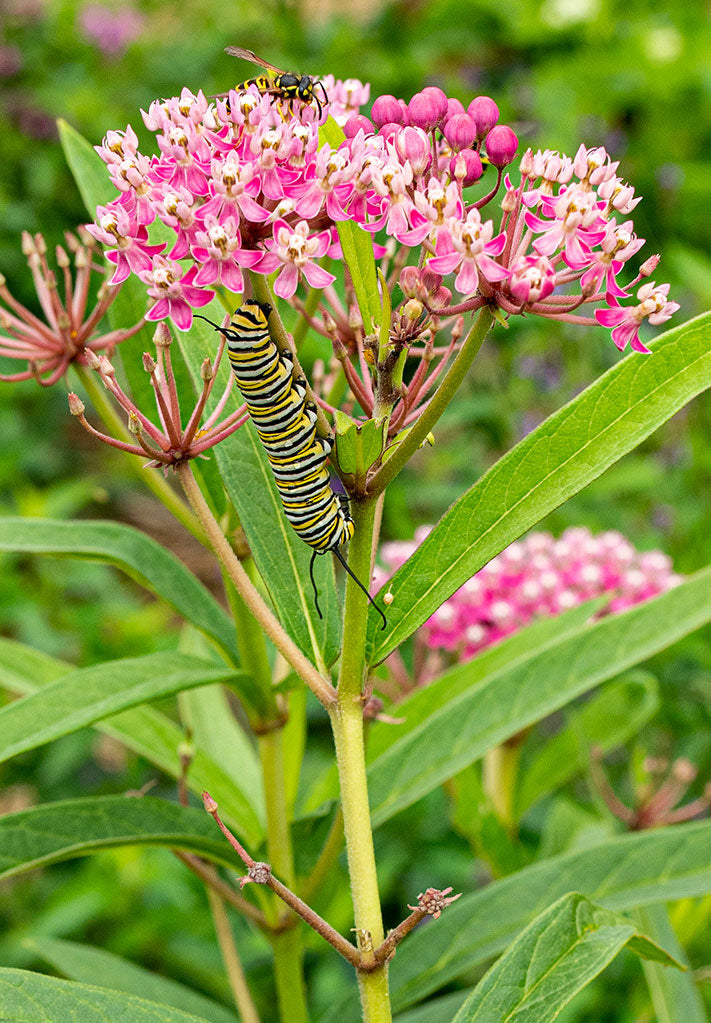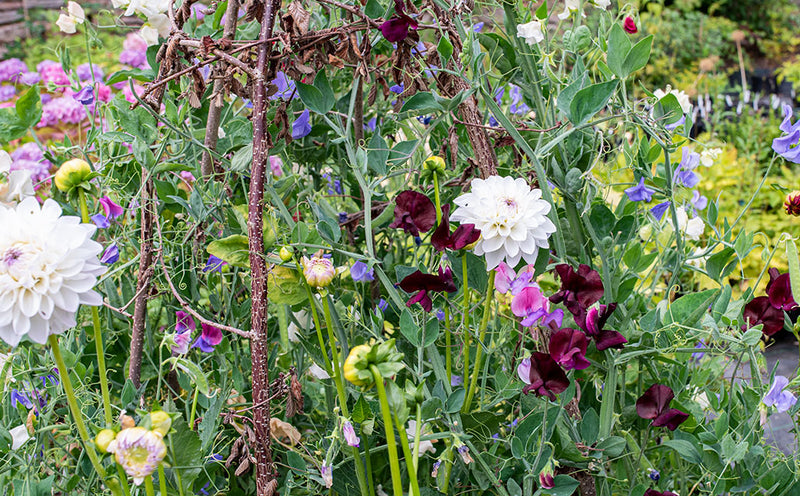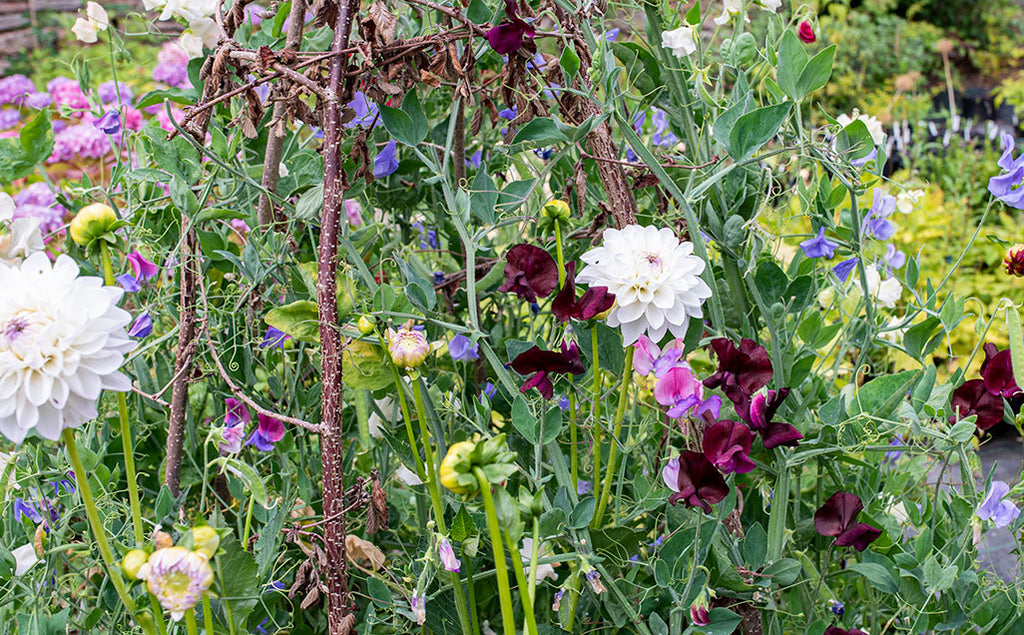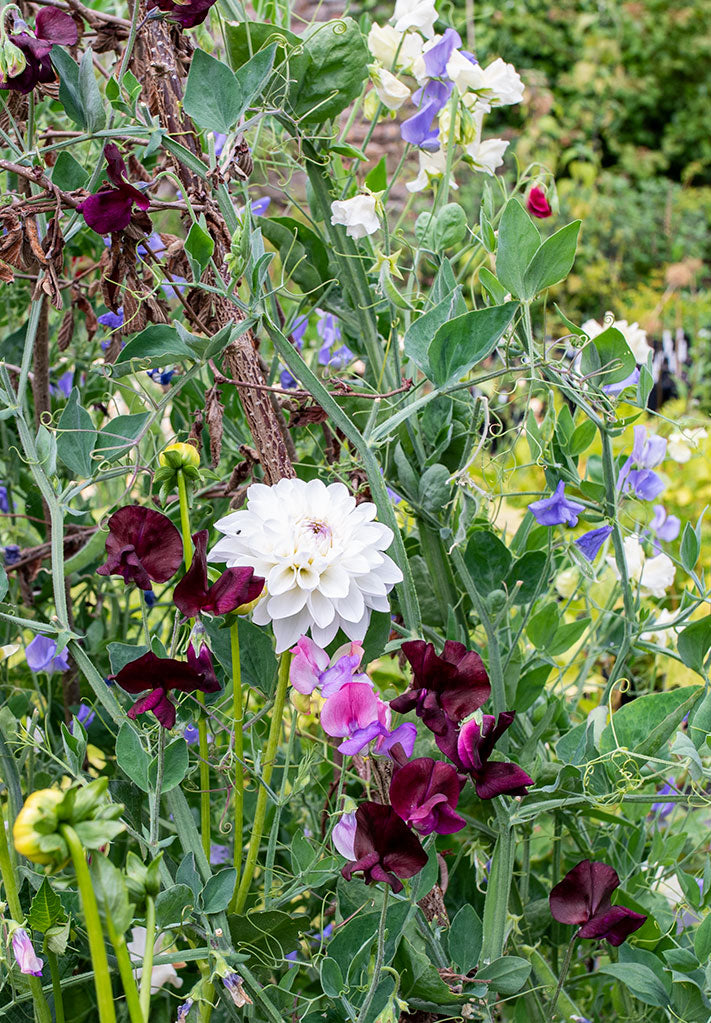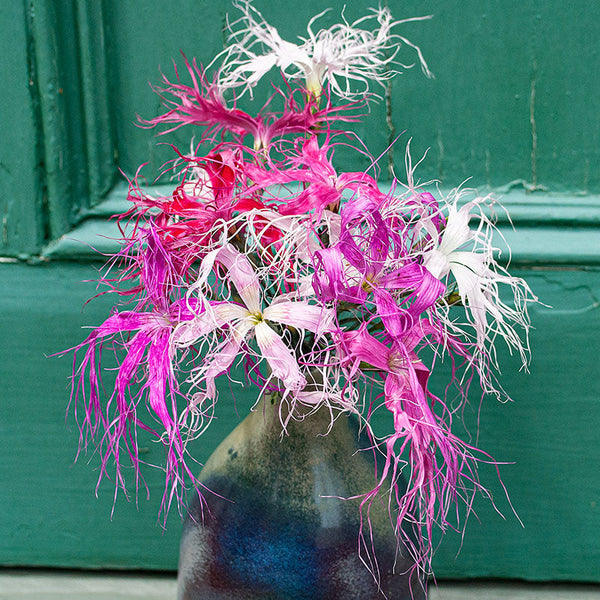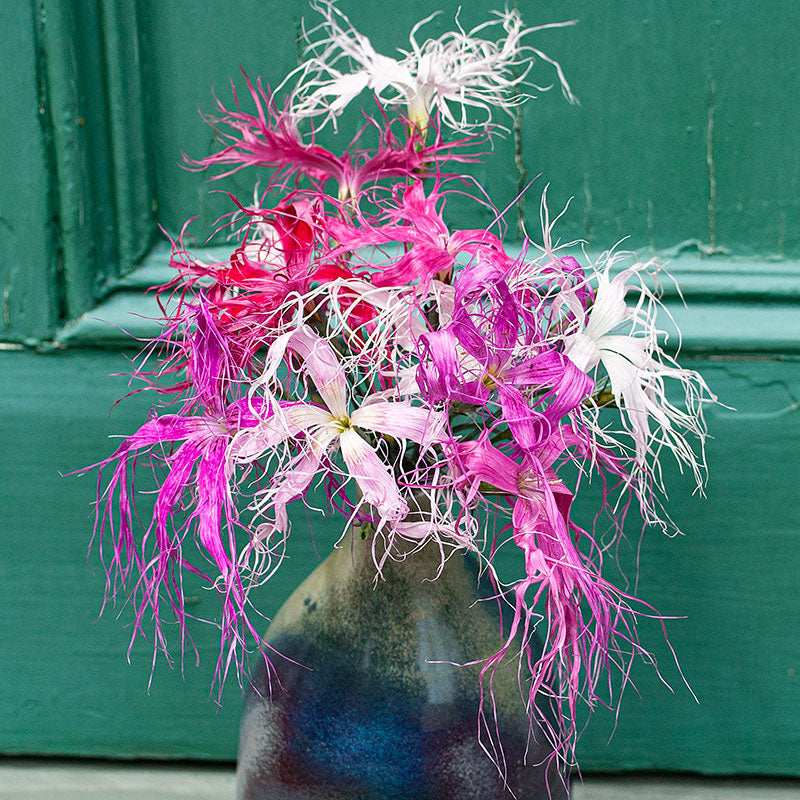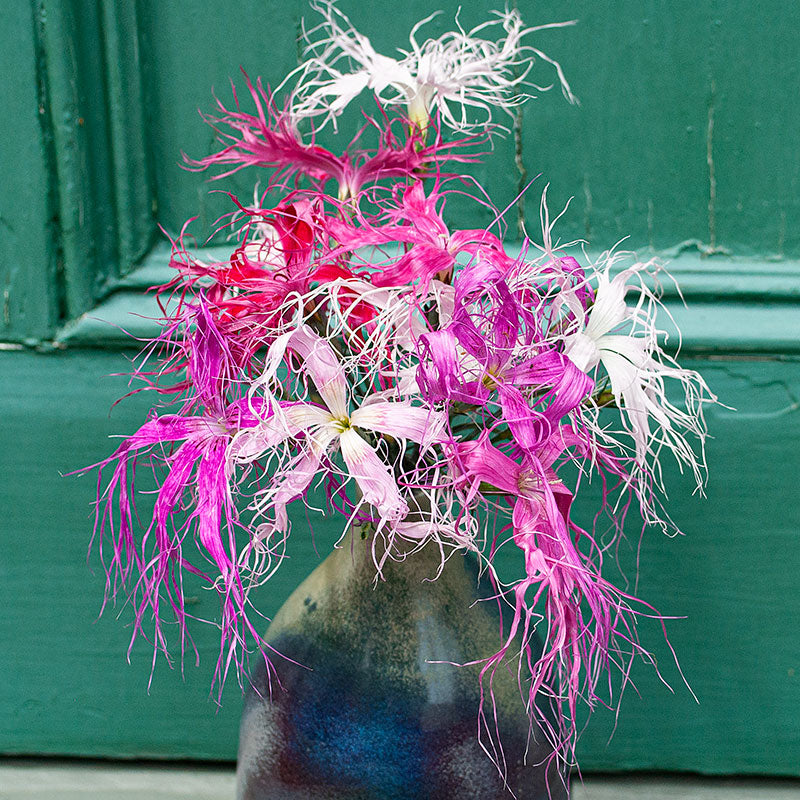SOWING INSTRUCTIONS
Starting Indoors:
6-8 weeks before last frost, sow in soil-less seed starting mix, covering containers with humidity dome to retain moisture. Keep at 65-70°F and remove covering once germinating.
Starting Outdoors:
Sow spring to mid-summer for blooms the following year.
WHEN TO SET OUTSIDE
Set outside in spring after all danger of frost has passed.
PLACEMENT & CULTIVATION
The fringed pink 'Dancing Geisha' is a beautiful plant that attracts butterflies and bees and is also deer-resistant. It thrives in average to rich, well-drained soils in full sun with little moisture, making it perfect for borders and drier areas like rock gardens. If mulching is necessary to suppress weeds, use a layer of fine gravel. In springtime, remove any winter-killed stems by pruning them away. To renew vigor, divide the plant every two to three years, preferably in early spring for zones 3-6 or in fall for zones 7-9.
Watering Details:
Water regularly during first growing season, about 1" per week, watering mornings only. Once established water during especially prolonged dry periods. Avoid overwatering and saturated soils.
Soil pH:
Tolerates most soil pH levels, but neutral to alkaline is preferred. If soil is particularly acidic, apply a handful of lime when planting.
Fertilizer:
Apply a low-nitrogen granular, organic fertilizer or 2" of compost in springtime.
Diseases & Pests:
Leaf spots can mar the leaves of Dianthus. Space well apart for good air circulation and apply organic fungicides if disease is present.
When to Cut for Bouquets:
Harvest when two flowers are open on the spray.



